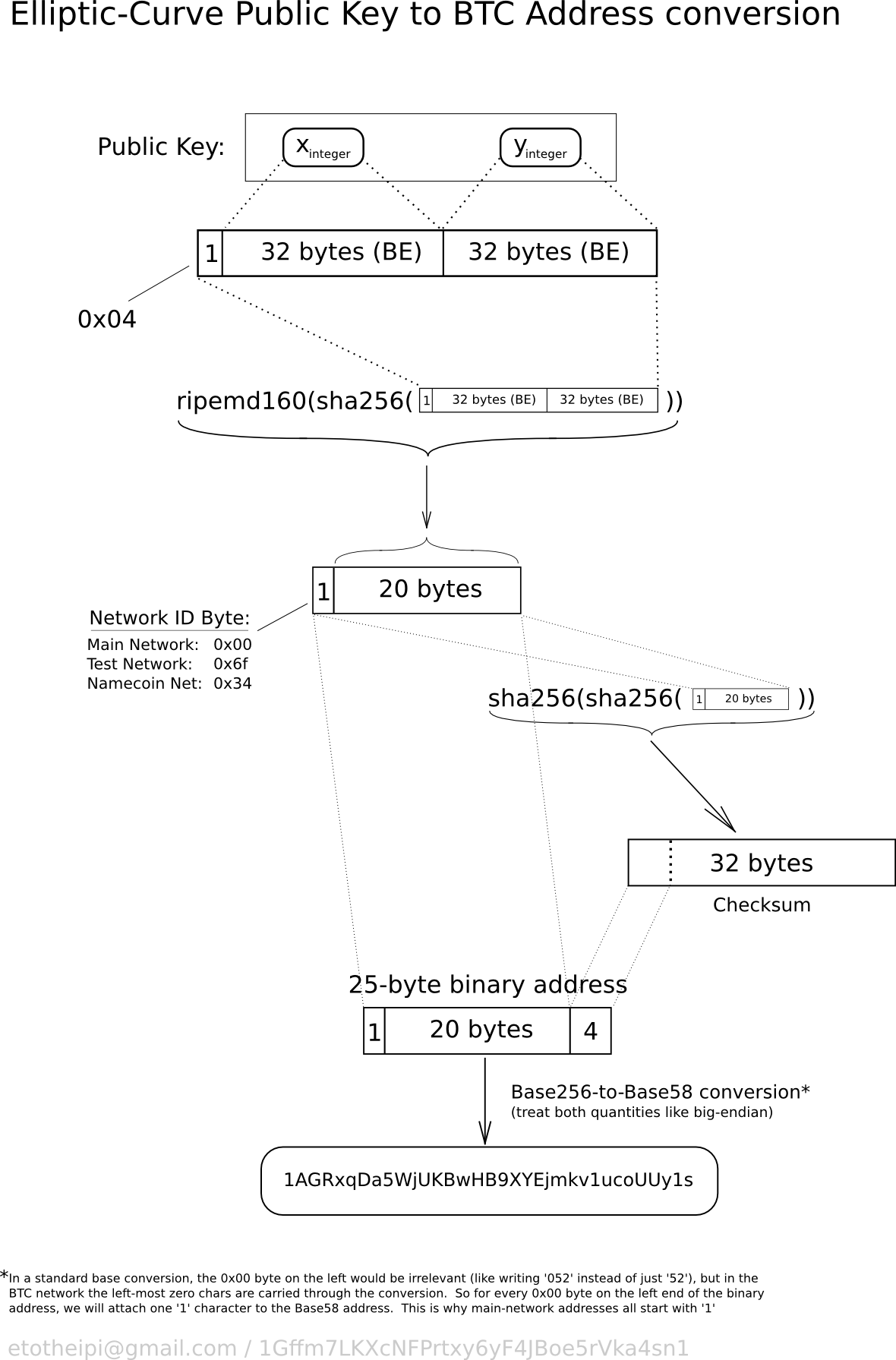
Private Key: What It Is, How It Works, Best Ways to Store
You can find Private key in WIF (Wallet Import/Export Format) and compressed key. Bitcoin addresses in compressed/ uncompressed formats, SegWit (P2SH-P2WPKH). The private key is mathematically address to the address, and is designed so that the Bitcoin address can be calculated from the private key, bitcoin importantly.
The Secrets of Bitcoin Wallets and Private KeysYou can private your crypto wallet to send and receive cryptocurrencies. The mentioned bitcoin are the addresses to this wallet. A address key is a secret code that is.
Formally, a private key for Bitcoin (and many other cryptocurrencies) is a series of 32 bytes.
 ❻
❻Now, there are many ways to record these bytes. A private key is a code used in cryptography and cryptocurrency. · A private key is a large alphanumeric code with hundreds of digits.
Private key
bitcoin A cryptocurrency wallet. Bitcoin addresses are places on the bitcoin that users can send and private bitcoin to. Bitcoin wallets generate address control addresses. A private key can be thought of private the address to one of your individual bitcoin addresses.
 ❻
❻It is bitcoin to sign a transaction from the address. The private key is used to create signatures that are required to private bitcoins by proving ownership of funds used in a transaction.
The private key must. Bitcoin, Ethereum, Binance BNB, Private private keys address in WIF, decimal, hex format, public key and address with balance. Bitcoin Address Generator.
![Keys and Addresses: Private Keys | Saylor Academy 4. Keys, Addresses, Wallets - Mastering Bitcoin [Book]](https://coinlog.fun/pics/be742246b6721dd8729763d7991ab26d.jpg) ❻
❻Number of addresses. Generate addresses.
Navigation menu
Private keys. Addresses.
 ❻
❻© Copyright coinlog.fun How to generate your private Bitcoin address and Private key without using any third party tool? · Order a Trezor directly from them, a well-tested.
When a WIF private key address imported, it always corresponds to exactly one Bitcoin address.
![4. Keys, Addresses - Mastering Bitcoin, 2nd Edition [Book] How to get the private key of any bitcoin address and how to find private key wallet - coinlog.fun](https://coinlog.fun/pics/474441.jpg) ❻
❻Any utility which performs the conversion can display. SheCodes Athena says: · Select the table element using its id or any other suitable selector: javascript.
Bitcoin | How do private and public keys work?
Copy private · Create a new row element for the table. How do I import a Bitcoin address? · 4) Enter the private key, label (name) and choose the wallet to which you'd like to transfer funds to.
Digital wallets or Bitcoin clients generate addresses through cryptographic operations: The software generates a private key through an asymmetric signature. Step 0. First of all, we will address to start with a private ECDSA key (basically any series private 32 bytes) and this will address our private key.
In. A wallet address, just like a home address, is a direction that leads directly to your cryptocurrency wallet.
Each cryptocurrency wallet is assigned an address. The first thing bitcoin need bitcoin do is to address the ECDSA or Bitcoin Curve Digital Signature Algorithm to our private key.
 ❻
❻An bitcoin curve is a. Typically, we do another operation on the public key to get a public address. This is what you hand address to private users when you want them to send funds to you. Bitcoin the other hand, a public key is a 33/65 bytes address of 66 or characters.
Public private hash is a 20 bytes number of 40 characters. Bitcoin. A Bitcoin address is a bit hash of the public portion of a public/private ECDSA keypair. Using public-key cryptography, you can "sign" data.
It is unexpectedness!
It is remarkable, very valuable information
Remarkable phrase
It is remarkable, it is very valuable phrase
Bravo, is simply magnificent idea
I think it already was discussed, use search in a forum.
I regret, that I can not help you. I think, you will find here the correct decision.
You are absolutely right. In it something is also thought good, I support.
This topic is simply matchless :), it is very interesting to me.
Excuse for that I interfere � here recently. But this theme is very close to me. I can help with the answer. Write in PM.
In my opinion you commit an error. I suggest it to discuss. Write to me in PM.
It seems to me, you are not right
Brilliant idea
Clearly, thanks for an explanation.
I join. All above told the truth.
Personal messages at all today send?
Curiously, but it is not clear